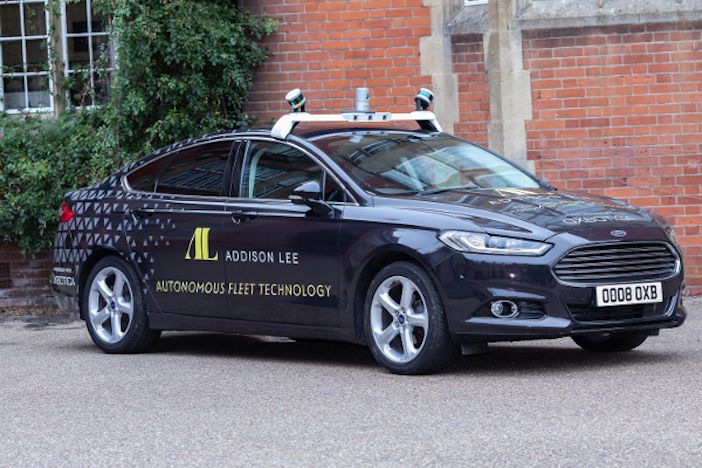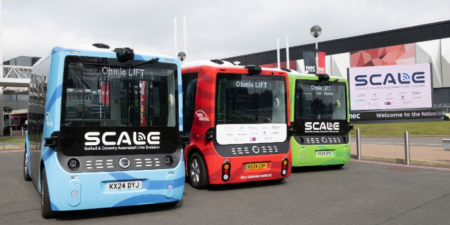Members of the public in London and Scotland will soon be among the first people in the UK to experience self-driving vehicle services as part of three new autonomous vehicle trials that have just been awarded nearly £25m (US$32m) in government funding.
The world-leading pilots will enable the public to ride on autonomous buses across Scotland’s Forth Bridge, as well as book self-driving taxis to travel around parts of London. The projects were selected following a competitive process and will share a £25m government grant through the fourth round of the Connected and Autonomous Vehicles (CAV) Intelligent Mobility Fund.
All three projects will include social behavioral research to further explore how driverless technology can seamlessly integrate into society, with the findings applied to the development for future autonomous service models. To further strengthen the environment for testing and development of self-driving technologies, £18m (US$23m) is also being awarded to four successful projects through the Meridian 2 and 3 competitions.
The three projects funded through the CAV Intelligent Mobility Fund are:
• Project CAV Forth – led by Fusion Processing – will bring together the University of the West of England, Alexander Dennis, Edinburgh Napier University, ESP Systex, Transport Scotland and Stagecoach (above) to develop a high capacity Autonomous Bus Pilot Service across the Forth Bridge. The project will convert five full-size Alexander Dennis single-decker manually driven buses into autonomous vehicles. These self-driving buses will provide a service capable of carrying up to 42 passengers 14 miles (22.5km) from Fife’s Park & Ride facility across the bridge to the Edinburgh Park train and tram interchange. With buses every 20 minutes, this could provide an estimated 10,000 weekly journeys, and support the case for rolling out similar services across the UK.
• Project Apollo – led by Addison Lee (top) with Oxbotica, Nominet, Immense Solutions and DG Cities – will develop and deploy four autonomous taxi pilot services that increase in complexity and distance in Greenwich, London. The project will build on the self-driving technology under development by Oxbotica as part of the existing government-backed DRIVEN project (above), combining six vehicles from that project with a further nine new vehicles to provide the four pilot customer services: (i) feed North Greenwich Station; (ii) a Hub-to-hub (no public transportation) service; (iii) a restricted on-demand service; and (iv) a ‘go anywhere in borough service’. Once proven this project will lead to the launch of a public service in 2021 (or sooner) while bringing together leading UK organizations and helping strengthen the country’s CAV supply chain in the emerging global market.
• ServCity project – led by Jaguar Land Rover (JLR) with Addison Lee, Transport Systems Catapult, TRL and the University of Nottingham – will develop a mobility service based in London using six autonomous Land Rover Discovery vehicles. Building on expertise from the government-backed UK Autodrive project, the consortium will test and further develop existing JLR sensing and autonomy systems in Coventry and the Midlands before deploying a pilot of a premium mobility service across four Greater London boroughs. The project will also develop analytical models to understand and demonstrate the wider positive impacts of CAVs on cities, from reduced air pollution to easing congestion.





